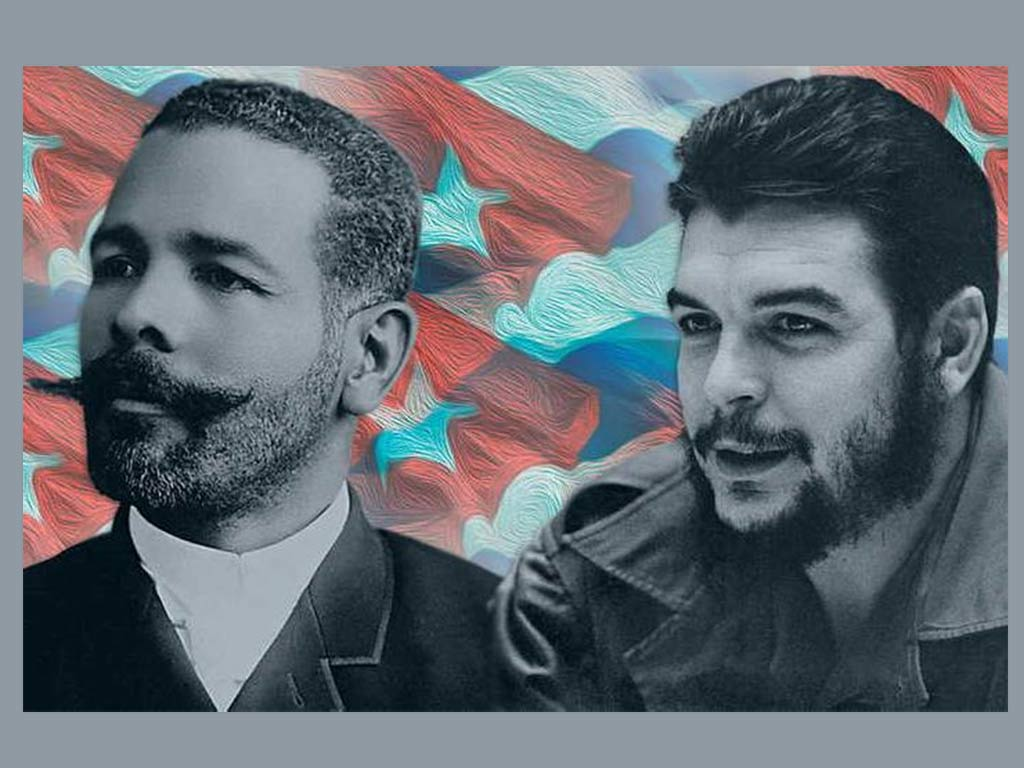
By Noel Domínguez/ PL.
In Antonio Maceo and Ernesto Che Guevara, many qualities coincided, beyond convergence in the day and month of birth, June 14, and the differences in the times in which they lived.
This is evidenced by patriotism, anti-colonialism and internationalism, the strategies of irregular warfare, humanism and love given to families.
Two greats in history were born on June 14 and left us unsurpassed examples of heroism at different times.
Today we say that #MaceoVives and that we want to be #LikeElChe , because both beat in the resistance of #Cuba .
Dos grandes de la historia nacieron el 14 de junio y nos dejaron ejemplos insuperables de heroísmo en épocas distintas.
— Miguel Díaz-Canel Bermúdez (@DiazCanelB) June 14, 2023
Decimos hoy que #MaceoVive y que queremos ser #ComoElChe, porque ambos laten en la resistencia de #Cuba. ???????? pic.twitter.com/DrYbhEkJHs
— Miguel Díaz-Canel Bermúdez (@DiazCanelB) June 14, 2023
The one who would later be called the Bronze Titan (1845-1896), always put his duty towards the independence of the island first; From early on he went to the claim of her mother, Mariana of Cuba and Mother of the Nation, when she summoned her husband and all of her children, demanding: "Let us swear to liberate the country or die for it.".
It was October 12, 1868, two days after the start of the war for the independence of Cuba.
His greatest visionary act as a political and military leader was the Baraguá Protest against the imposed Paz del Zanjón in 1878, which set the standard for the honor and heroic resistance of his people against Spanish colonialism.
Years later, the National Hero of Cuba, José Martí, immortalized the symbol of that conduct by stating: “Maceo has as much strength in his mind as in his arm […]. Firm is the thought of him and harmonious ”.
Maceo's brilliant performance allowed him to reach the high rank of Lieutenant General in September 1895, the second most senior military chief, after General-in-Chief Máximo Gómez Báez.
He fell in combat on December 7, 1896 in San Pedro, Havana province. His remains rest in the monument of El Cacahual.
Patriotism and internationalism
Ernesto Che Guevara (1928-1967), almost a century later, made an early display of his patriotism and internationalism since he prepared to fight alongside the Guatemalan people in 1954, against the invading hordes sent to attack the rebellious Guatemala of Jacobo Árbenz.
Later, enrolling in Mexico with the revolutionary movement that Fidel Castro was preparing to liberate Cuba, the first stage of a dream with Latin American flights that culminated in Ñacahuasu, Bolivia.
Maceo in 1884, aware that some landowners launched another campaign in favor of the annexation of Cuba to the United States, wrote: “Cuba will be free when the redemptive sword throws into the sea its opponents […]. But whoever tries to appropriate Cuba will collect the dust from its blood-drenched soil, if he does not perish in the fight. […]. With it we will perish rather than be dominated again; we want independence and freedom.”
The internationalism of the Titan manifested itself on June 6, 1884, stating his intention that "when Cuba is independent, I will request the Government to establish permission to free Puerto Rico, because I would not like to hand over the sword leaving a slave that portion of America."
The irregular war made Maceo and Che coincide as the main protagonists of the strategy of their respective bosses, Máximo Gómez and Fidel Castro, with the cunning of the invasion from East to West. On January 22, 1896, the Titan's troops arrived in Mantua, Pinar del Río, in western Cuba, the culminating point of the invasion after a journey of three months, exactly from the departure of Mangos from Baraguá, in the eastern part of the island.
Che Guevara, who would make a similar journey 62 years later, during the final offensive against the dictatorship of Fulgencio Batista (1952-1958), would express his admiration for Maceo in this way:
“To do this […] an immense power of organization was needed, an immense faith in victory and in the fighting capacity of his men, and an extraordinary power of command to exercise it day by day, during years of fighting, in conditions extremely difficult."
Their virtues and limitless humanism towards their respective families and friends in the struggle were revealed on various occasions. In the Titan, when he said: “Three times in my anguished life as a Cuban revolutionary I have suffered the strongest and most stormy emotions of pain and sadness: [the loss of] my father, the Zanjón Pact, [and the loss of] my mother".
The Argentine-Cuban guerrilla fighter defined him this way in his farewell letter to his parents in 1965: "Many will call me an adventurer, and I am, only of a different type and one of those who put their skins on to demonstrate their truths."
Maceo for his part used to point out: “The triumph of our cause I feel in my own being, inveterate in the blood; if he mistrusted, he would die on the spot that he harbored those doubts.
“I feel more and more encouraged and willing to resist against nature and men who oppose the realization of our political goals. I will win”.
Men of action, convictions and solid ideology, were also united in the assessments that they gave. Gómez said to the Titan's wife, María Cabrales: "With the disappearance of that extraordinary man, you lose the sweet companion of your life, I lose the most illustrious and bravest of my friends and finally lose the liberating army to the most exalted figure of the Revolution”.
Fidel also summed it up this way: “If we wanted to know how we want our children to be, from the bottom of our hearts we would say that they should be like Che”, an expression that was later extrapolated in the daily oath of the pioneers. (Photo: PL)